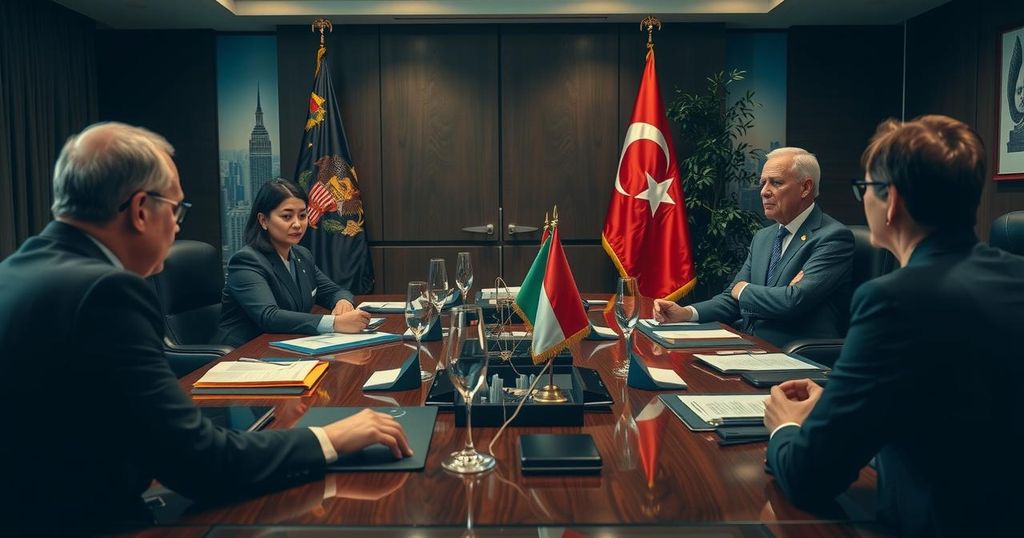Iran’s Foreign Minister Cautions Europe Against Critical IAEA Resolution

Iran’s Foreign Minister, Abbas Araghchi, has cautioned the European powers against proposing a critical resolution at the IAEA meeting, condemning their actions as likely to complicate matters further. He emphasizes the need for dialogue rather than confrontation in addressing nuclear concerns.
Iran’s Foreign Minister, Abbas Araghchi, has issued a stern warning to Germany, France, and the United Kingdom regarding their intention to present a resolution critical of Iran at the upcoming International Atomic Energy Agency (IAEA) board meeting. In a recent dialogue with his French counterpart, Jean-Noel Barrot, Araghchi expressed his deep disapproval of the draft resolution proposed by these European nations, cautioning that such actions are likely to exacerbate existing tensions rather than promote resolution. He emphasized the necessity for cooperative dialogue instead of confrontational measures.
Tensions surrounding Iran’s nuclear program have remained a point of contention between Iran and Western powers, particularly the three European nations involved in the negotiations. The IAEA serves as a critical platform for discussions about nuclear safety and compliance among member states. Recent actions by these countries to table a resolution against Iran indicate a sustained effort to address concerns regarding Iran’s nuclear activities, which they perceive as a threat to regional and global security. The Iranian government, however, views such resolutions as hostile and counterproductive to diplomatic efforts.
In summary, the warning from Iran’s Foreign Minister reflects the heightened sensitivity surrounding efforts by European states to hold Iran accountable at the IAEA. The Iranian leadership views the proposed resolution as detrimental and potentially inflammatory, further complicating the ongoing discussions regarding its nuclear program. As the situation unfolds, it remains critical for all parties involved to pursue dialogue and seek resolutions that prioritize diplomacy over confrontation.
Original Source: www.barrons.com








